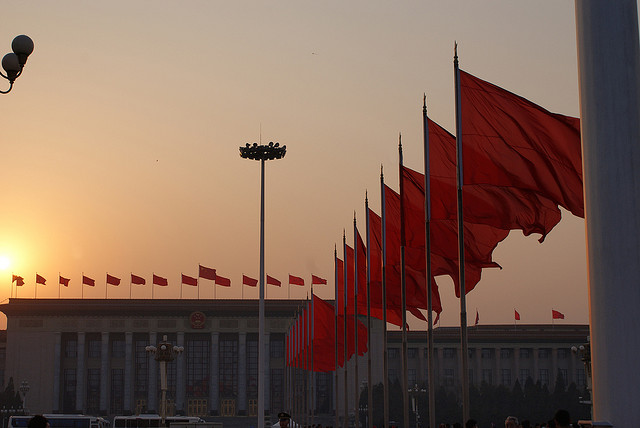As part of the recently renewed campaign for the Northern Gateway Pipeline, Prime Minister Stephen Harper landed in Kelowna, BC, last week to conduct meetings with relevant stakeholders. Though popular commentary on the Northern Gateway project focuses on the tension between lucrative economic benefits and environmental concerns, the pipeline also sheds light on the complex nature of Canadian federalism. In fact, the success of this federal priority hinges on Prime Minister Harper’s ability to sell it to provincial actors. In particular, the federal government needs to address objections from British Columbia’s provincial government and First Nations groups.
It is undeniable that the Northern Gateway pipeline would have significant implications for Canadian politics and economic health. Canada is home to the world’s second largest known oil deposit, most of which is in Alberta’s bitumen sands. However, out of over 142,000 square kilometers of oil sands, mining operations are currently conducted on only 620 square kilometers. As of 2011, oil is mined at a rate of 1.3 million barrels a day, a sum that pales in comparison to the massive reserve containing an estimated 170 billion barrels of crude oil. Given current technology and infrastructure, it will take over three hundred fifty years to deplete this supply.
Alberta’s provincial government and the Harper administration want to increase oil production by increasing infrastructure that will, they argue, create thousands of long-term Canadian jobs and increase Canadian GDP and tax revenues. In response, Enbridge (a major Canadian oil producer with large holdings Alberta) proposed the creation of the Northern Gateway pipeline to transport crude oil from Alberta to Kitimat, British Columbia, where it can be refined and exported to Asian markets, in particular. Enbridge claims that through increased oil production and job creation, the Northern Gateway pipeline will increase Canadian GDP by approximately 270 billion dollars over the next 30 years. By creating the opportunity to export to foreign markets, the Northern Gateway pipeline would also serve to weaken the monopoly of American companies in Alberta, that currently export oil to the United States at prices well below market.
Alternatively, opponents of the Gateway project highlight that the extraction of bitumen oil is highly energy intensive, emitting approximately 12% more carbon per barrel of crude oil than conventional methods. More importantly, to the residents of British Columbia and to First Nation tribes, the Gateway poses unacceptable risks of spillage. Studies by Simon Fraser University posit that oil tankers transporting the crude from Kitimat to foreign markets will spill approximately once every 15 to 41 years, while Enbridge places the possibility at once every 62 years. Major tanker spills will cost millions of dollars to clean up and damage the fragile ecology of the Georgia Strait, posing a significant threat to BC’s fishing and tourist industries. Land spills can damage hunting grounds and ancestral lands of First Nation tribes.
The controversy regarding the Northern Gateway pipeline highlights the nature of Canadian federalism and its capacity – or incapacity – to mediate regional interests and federal objectives. Under the Canadian Constitution, the BC provincial government has control over natural resources within provincial boundaries, including 75% of the land that the pipeline will traverse. The remaining 25% of the land belongs to First Nation tribes. The project cannot proceed without approval from the BC provincial government and First Nations tribes involved. In the spring of 2013, BC officially announced its opposition to the pipeline, claiming that Enbridge and the Alberta provincial government failed to meet 5 conditions: passing an environmental review, creating a world class oil spill prevention and response plan for both land and sea, promising a fair share of economic benefits of the pipeline, and demonstrating respect for First Nations rights.
The result of the federal government’s recent campaign will have a significant impact on the future of Canadian governance and economics. First, the establishment of the Northern Gateway pipeline would also bolster trade with Asian markets, decrease economic dependency on the US, and lead to increases in Canadian GDP and tax revenues. What’s more, recognition of First Nations treaties and respect for their lands may increase their support for the Harper administration in the future. That said, the construction of this pipeline has undeniable environmental costs. Finally, this project marks a turning point in Canadian politics: whether the Northern Gateway Project will mark the failure of intrastate politics or become the gateway to a more prosperous future remains to be seen.




